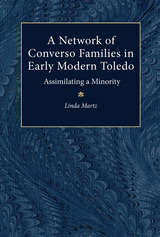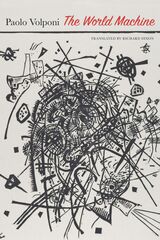
This study of the sometimes stormy career of a brilliant and colorful talmudist offers a broad picture of medieval Hispano-Jewish culture.
Meir Abulafia (ca. 1165-1244), commonly called Ramah, was born into the old Jewish aristocracy of Muslim Spain and educated in the best Judeo-Arabic tradition, but lived his whole life under the new political and cultural realities of Christian Spain. Mr. Septimus portrays Ramah's career as a lawyer, exegete, poet, and theologian in an age of rapid cultural change. His book describes the intellectual cross-fertilization and conflict that resulted from new connections with European Jewish communities to the north. It focuses, in particular, on the great controversy over the philosophical rationalism of Maimonides, which Ramah initiated and in which he played a major role. This clash dominated Jewish intellectual history for three centuries and parallels important developments in Latin Christendom.

Linda M. Martz focuses on families that were immersed in the worlds of business and finance. They formed the backbone of the trade industry and, during the economic expansion of the sixteenth century, enjoyed a high degree of affluence. The seventeenth century, however, brought harder times. How these families rose to positions of commercial eminence and then adapted to this economic downturn is one of the questions addressed in this insightful book.
A Network of Converso Families in Early Modern Toledo relies heavily on archival evidence--notarial, parish, and city records--that offers new insights into the families' histories. Business endeavors, marriage alliances, involvement in local politics, and the pursuit of improved social status are all subjected to Martz's keen analysis.
These families appear to have been well integrated into their contemporary society; aside from their business and financial activities, many were members of the city's governing council. But how well did they integrate with the lower classes? Assimilating minorities in the majority culture is a task that confronts most modern societies, so the experience of Spain and this particular minority may serve as an example of how earlier societies viewed and confronted this challenge.
This book will appeal to historians of medieval and Renaissance Spain and those interested in the Inquisition's effect on Renaissance Spain. It will also prove to be indispensable for those interested in the history of the Jewish race, as well as for those pursuing the question of marginalization.
Linda M. Martz is an independent historian as well as a freelance editor and writer.
READERS
Browse our collection.
PUBLISHERS
See BiblioVault's publisher services.
STUDENT SERVICES
Files for college accessibility offices.
UChicago Accessibility Resources
home | accessibility | search | about | contact us
BiblioVault ® 2001 - 2024
The University of Chicago Press









